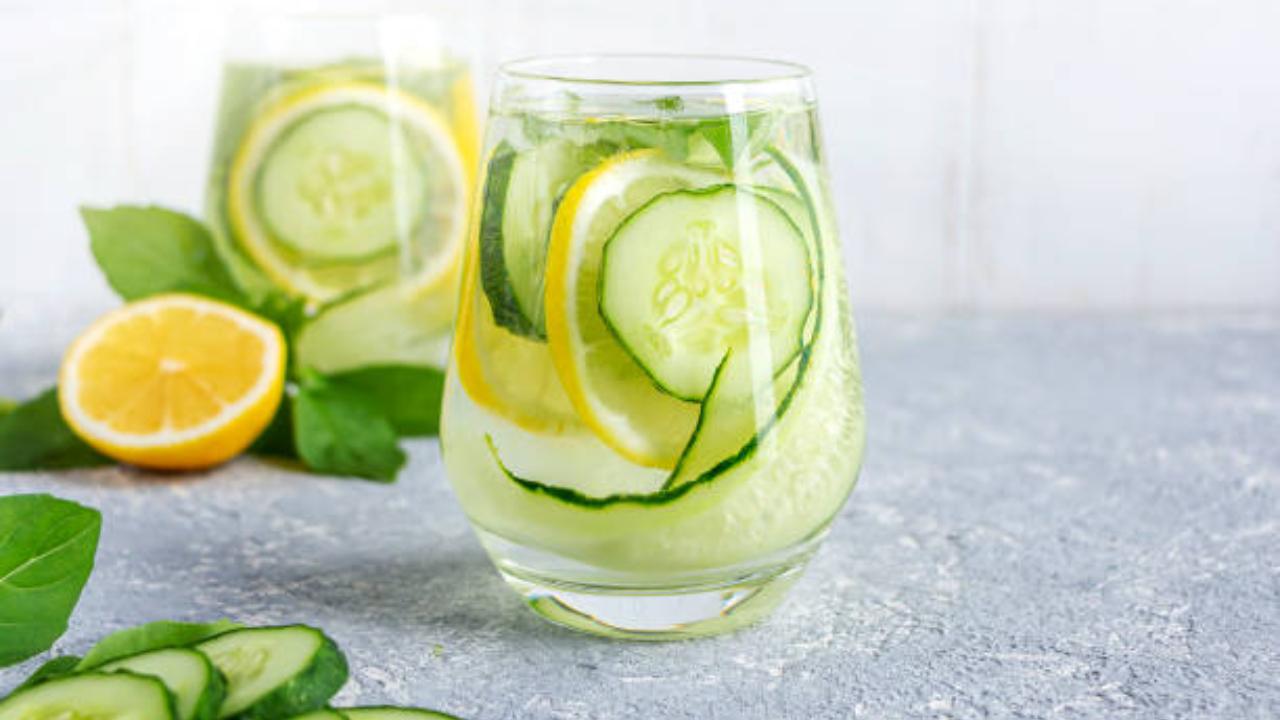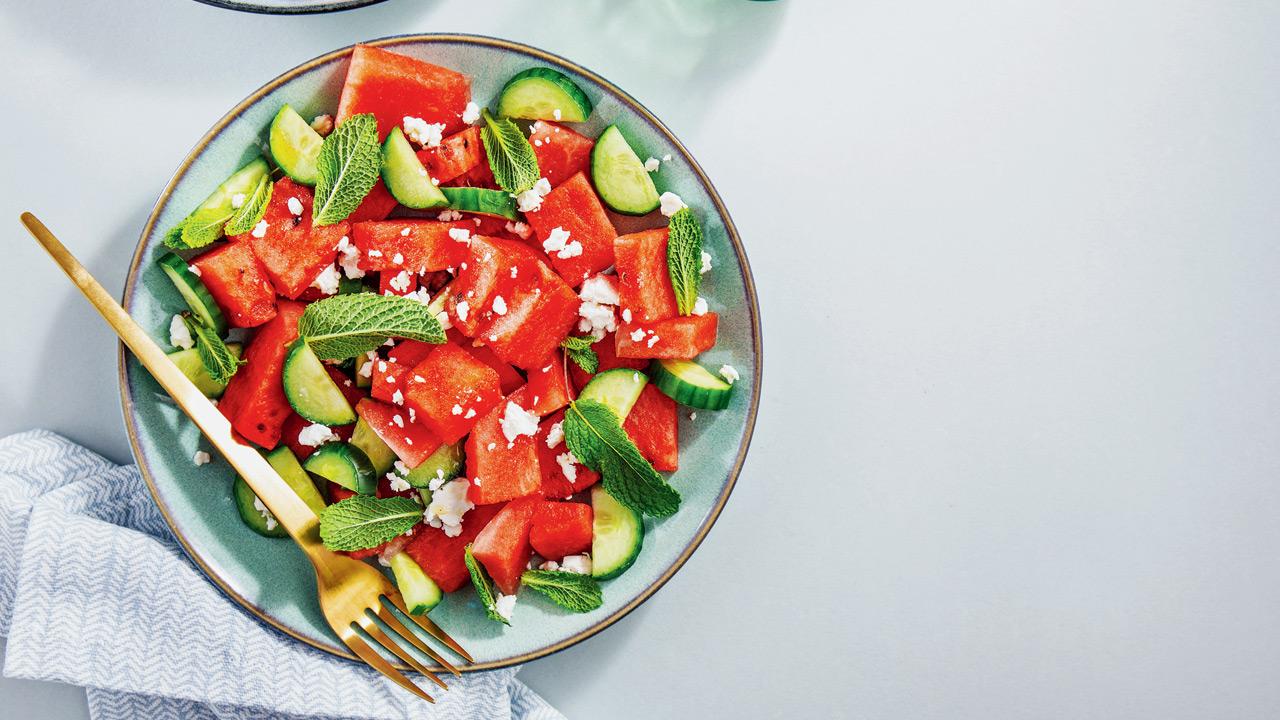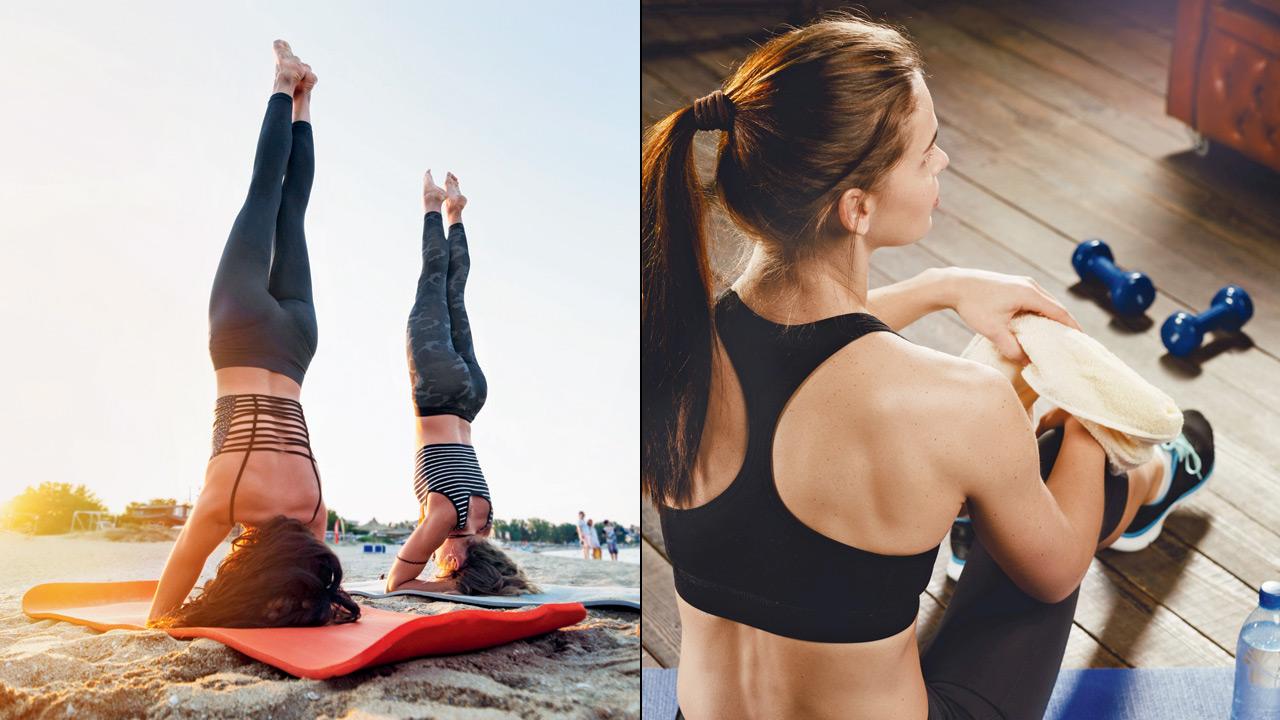IN PHOTOS | Mumbai heatwave alert: Experts share tips to maintain health and fitness as temperatures rise
The India Meteorological Department (IMD) has issued a heatwave alert for Mumbai, Thane and other neighbouring districts in Maharashtra's Konkan region on Tuesday and Wednesday in view of the rising temperatures. As cooler temperatures transition into blazing summer heat, the change can be ruthless to your 9 to 5 routine, especially if you have a desk-bound job. It can affect health in various ways like exacerbating existing conditions, affecting energy levels, etc. Here’s how to keep your health in top order as the season changes. (Story by: Anindita Paul)
Updated on : 25 February,2025 11:31 AM IST | Compiled by : Raaina Jain
Representational Images

Hydration
Shimpli Patil, head nutritionist and lifestyle expert at Luke Coutinho Holistic Healing Systems, recommends increasing your water intake to at least two or three litres per day. You could also add lemon or mint for extra refreshment. Sip on cooling herbal infusions such as aam panna, buttermilk, fennel, mint, sabja seeds (basil seeds) or coriander seed tea, which aid in digestion, and naturally lower body heat.

Nutrition
Swap heavy winter meals for water-rich foods such as cucumbers, melons, citrus fruits and leafy greens to maintain hydration and electrolyte balance, which can help prevent sluggishness. It is also advisable to reduce intake of caffeine, carbonated drinks and excessive salt, as these dehydrate the body and further contribute to fatigue.

Fitness
Jeff Bathija, personal coach at Mid-life Lifting Club, suggests, “Opt for low impact and indoor workouts, which keep the heart rate controlled, reduce stress on joints and minimise overheating. Strength training is ideal for the summer months. Make sure you are training in a well-ventilated gym or at home with adequate hydration. To minimise strain and overheating, increase the rest between sets to 60 to 90 seconds.” Maintaining moderate rep ranges (8-12 reps per set) is advisable.

“Walking, cycling at a relaxed pace without high-intensity sprints or swimming for full-body conditioning are optimal. You could also add yoga and mobility work to your routine for recovery and flexibility,” he explains.

Bedtime routine
Patil suggests these simple but effective steps to sleep better and wake up more refreshed:
- Take a lukewarm shower before bed to lower your body temperature naturally.
- Keep the curtains drawn during the day to block excess heat and maintain a cooler indoor environment.
- Switch to breathable cotton bed linens for better air circulation and comfort.

At-work wellness practices
Follow these steps to reduce stress at the workplace:
- Practise deep breathing or short meditation breaks.
- Calming instrumental music while working can create a relaxed and productive atmosphere.
Read Full Story: Expert tips to stay healthy and fit as the season changes





